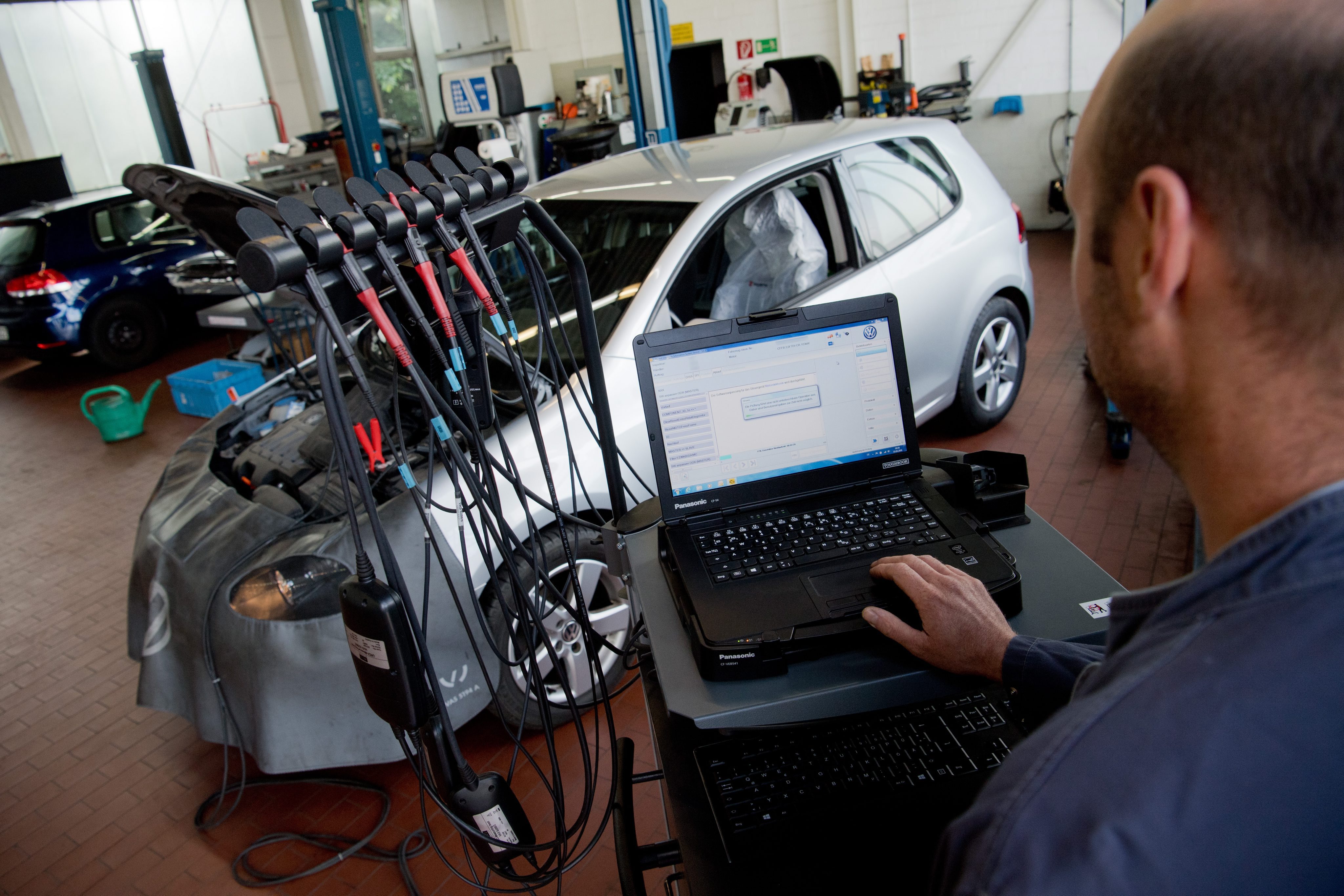For owners of about 475,000 Volkswagen and Audi vehicles with 2-liter diesel engines, a $14.7-billion settlement announced Tuesday in a case involving VW's admissions of cheating on emissions tests is going to have huge implications.
"We're getting VW's polluting vehicles off the road and we're reducing harmful pollution in our air," said Gina McCarthy, administrator of the Environmental Protection Agency.
As big as the settlement between the company, government agencies and class-action lawyers became, VW still faces myriad other actions arising from its deception, including a Justice Department criminal probe. The case became "one of the most fragrant violations of environmental and consumer laws in our country's history," said Deputy Attorney General Sally Yates.
Its effects will be far reaching, including for individual car owners. Here's what you need to know:
What's this all about?
Volkswagen admitted that it inserted software so that cars with four-cylinder 2-liter diesel engines would pass emissions tests even as they spew up to 40 times the allowable amount of nitrogen oxides when they are on the highway.
Why did Volkswagen do that?
Volkswagen has admitted that its engineers couldn't meet U.S. regulations for nitrogen oxides. So they installed the "defeat device" software would fool regulators into believing the cars were compliant on emissions.
Volkswagen and other German automakers were hoping that their "clean diesels" would provide a more cost effective alternative to gas-electric hybrid engines.
How many cars are covered by today's actions?
Volkswagen says that about 460,000 VW models and 15,000 Audi cars with 2-liter engines were sold or leased in the U.S. and are still in use.
Which models?
The 2-liter diesel versions of the 2013 to 2015 VW Beetle, 2010 to 2015 VW Golf, 2009 to 2015 VW Jetta, 2012 to 2015 VW Passat and 2010 to 2013 and 2015 Audi A3.
How will owners be compensated?
Volkswagen will make a payment of $5,100 to $10,000 depending on the "diminished value" of their model, according to the Federal Trade Commission. Plus, VW will either repair or back back the car, depending on what the owner prefers.
How will buyback prices be determined?
They will be based on the "Clean Trade-In Value" as published in the September edition of the NADA Used Car Guide. The buyback prices will range from $12,500 to $44,000.
Why was that date chosen?
Because the resale values of Volkswagen diesels have fallen sharply since the start of the scandal, which was exposed by the Environmental Protection Agency on Sept. 18, 2015.
Is there a limit to how much Volkswagen is willing to spend?
It says it has committed $10 billion to the effort. It should be enough: VW says it assumes 100% buyback or lease termination.
Will the cars work as well if owners choose to have their cars repaired?
Unclear. VW has yet to propose a fix. But it's possible that the cars will lack the same performance. Some may not be repairable.
What about owners of cars with 6-cylinder, 3-liter diesel engines?
Those cars have also been found to be out of compliance. They are still being investigated. No settlement has been announced yet.
What should owners of the 2-liter cars do now?
Sit tight. The settlement has to be approved by a judge but lawyers say the payment and buyback process could start as soon as the fall.
What if I sold my car?
People who owned an affected VW model as of Sept. 18, 2015, when the EPA first exposed the scandal, or acquired a vehicle since then will be eligible. Anyone who sold their car since Sept. 18 will split the compensation about 50-50 with the buyer. Anyone who sold their vehicle before Sept. 18 is not eligible.
Where can I find out more information?
Visit VWCourtSettlement.com.

![VW Emissions Settlement to Benefit Consumers [video : 86478148]](http://videos.usatoday.net/Brightcove2/29906170001/2016/06/29906170001_5003173024001_5003112645001-vs.jpg?pubId=29906170001)

